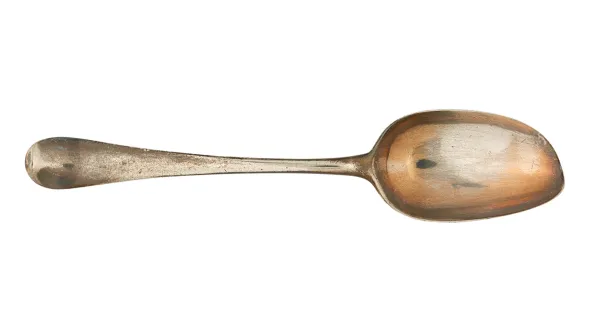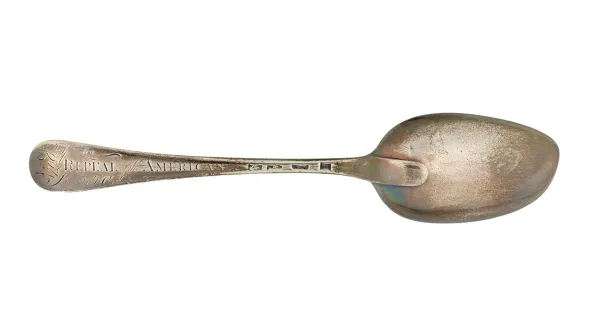In order to help fund the expense of defending its American colonies, Great Britain instituted a tax on printed paper used by the colonists. Many in America opposed the Stamp Act, not because the tax was high, but because without representation in Parliament they had no voice in the decision. In the Virginia House of Burgesses, Patrick Henry introduced the “Virginia Resolves,” which argued that Virginia was subject to taxation only by a parliament to which the colony itself elected representatives. Eight other colonies followed Virginia’s lead and passed similar resolves by the end of 1765.
Among those opposed to the act was Landon Carter (1710–1778) of Richmond County. His form of protest was more personal. When he directed his agent in London to purchase several tablespoons for his home, he ordered that if the Stamp Act was repealed, the spoons should be made of silver. If the act was not repealed, the agent was to send him cheap bone or horn spoons.
The act was repealed on March 18, 1766, and Carter’s agent had the silver spoons engraved with Carter’s initials, the date 1766, and the triumphant inscription “Repeal of the American Stamp Act.” The controversy over the Stamp Act brought to light a growing schism between the colonists and their king.


